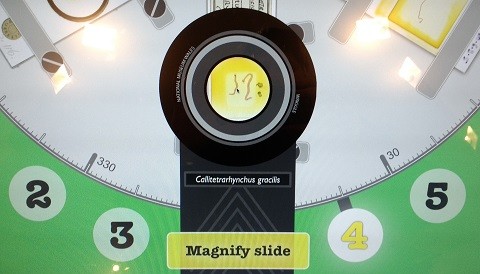Humans are fascinated by worms. As we find new ways to use them in landfill waste solutions or genetics studies or mourn the sad demise of Dave, the UK’s longest earthworm, our preoccupation with the squirmy creatures is clear.
If you’re curious as to why, the exhibition Wriggle! The Wonderful World of Worms at the National Museum in Cardiff provides some explanations.
Kate Mortimer-Jones is Marine Invertebrates Senior Curator at the museum. She explains that Wriggle! was a long time coming. Museum staff include three experts on marine bristle worms and houses about 1,000,000 invertebrate specimens.
The idea for a worm-centric exhibition simmered on the back burner until staff could devise a timely, engaging way to construct it. “When we put an exhibition on, we really want to highlight and promote the fantastic collection we’ve got,” says Kate.
Then, earlier this year, two things happened to spark Wriggle! off. Firstly, the museum requested a family-friendly exhibition. Shortly afterward, staff learned that they would be hosting the 12th Annual Polychaete Conference which would bring together 200 worm experts from around the world.
The challenge would be to put together an exhibition that would appeal to very different groups. Kate explains, “We wanted to try and produce something that was family-friendly but didn’t put off other people.
Wriggle! looks at the world of worms through a variety of lenses
They appear to have succeeded: the worm experts were enthusiastic about Wriggle! and the general public is as well. And last Sunday, there was a healthy sprinkling of child-free adults amongst all the families perusing the displays.
Daisy, 28, and Liam, 29, were in Cardiff for a short visit and decided to check Wriggle! out. Although Daisy admitted she wasn’t too keen on worms, Liam was enthusiastic. “I’m interested in terrestrial worms and their importance in soil regeneration and fertility,” he said, adding that he thought Wriggle! was “really good.”

